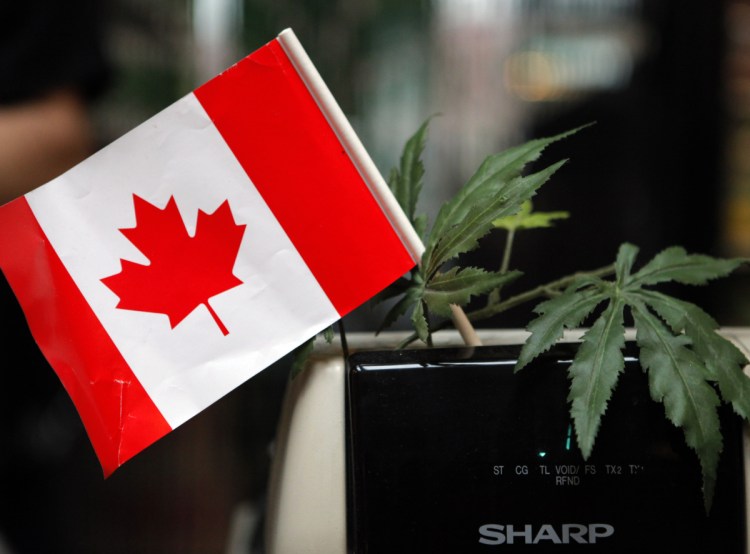OTTAWA, Ontario — Canadians about to enjoy legal marijuana, or even investors in the business sector, could be in for a new headache at the U.S. border.
Border guards have broad powers to question Canadians on their current and past drug use and could declare users inadmissible, perhaps for life, immigration experts say. U.S. officials also warn that any form of participation in the marijuana sector could result in being turned away, signaling potential problems for investors.
Canada is due to legalize recreational use of the drug Oct. 17, but it is still illegal under U.S. federal law, despite states like Colorado and California loosening restrictions. Prime Minister Justin Trudeau’s government and travel agents are warning Canadians to make sure they have no trace of the drug in their cars or luggage.
“Working or having involvement in the legal marijuana industry in U.S. states where it is deemed legal or Canada may affect an individual’s admissibility to the U.S.,” Mike Niezgoda, a spokesman at the U.S. Customs and Border Protection office in Buffalo, N.Y., said in an email.
“Although medical and recreational marijuana may be legal in some U.S. states and Canada, the sale, possession, production and distribution of marijuana remain illegal under U.S. federal law,” Niezgoda said.
“A lot of people don’t understand that they are still going to have problems after legalization,” said Henry Chang, a partner at Blaney McMurtry LLP in Toronto who handles immigration law on both sides of the border. “You need to stay off the radar — if there’s something that prompts them to think that you are a marijuana user, the first question will be: ‘Do you smoke marijuana?'”
Those at risk include people in border towns who frequently cross over to buy gas or milk, tourists and transport workers who haul billions of dollars worth of goods a month into the U.S. Even executives at marijuana companies could be accused of bringing the trade where it’s not welcome.
The rub is that it’s illegal to have smoked the drug in Canada before Oct. 17, and it’s illegal to lie to any border agent who asks about it. An estimated 4.6 million Canadians use marijuana, about 16 percent of the adult population.
Another official said those participating in the marijuana business may be turned away at the border. “Facilitating the proliferation of the legal marijuana industry in U.S. states where it is deemed legal or Canada may affect an individual’s admissibility to the U.S.,” Todd Owen, executive assistant commissioner for the Office of Field Operations at the U.S. Customs and Border Protection agency, told Politico.
While Owen didn’t specify any minimum level of investment, he signaled that the focus was more on those bringing the business to the U.S., which could have implications for the burgeoning sector.
Send questions/comments to the editors.



Success. Please wait for the page to reload. If the page does not reload within 5 seconds, please refresh the page.
Enter your email and password to access comments.
Hi, to comment on stories you must . This profile is in addition to your subscription and website login.
Already have a commenting profile? .
Invalid username/password.
Please check your email to confirm and complete your registration.
Only subscribers are eligible to post comments. Please subscribe or login first for digital access. Here’s why.
Use the form below to reset your password. When you've submitted your account email, we will send an email with a reset code.